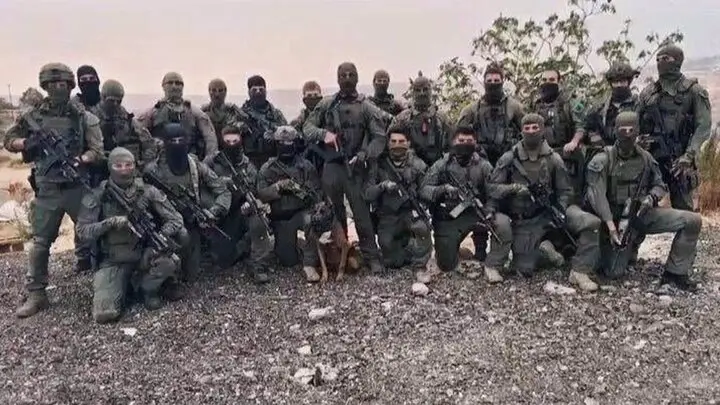7 Critical Revelations on the Rising Mercenary Actions in Gaza Humanitarian Crisis

Israel regime deploying foreign mercenaries to Gaza Photo: Mehr 3/8/2025
August 3, 2025 Hour: 12:30 pm
UG Solutions accused of mercenary actions in Gaza’s food aid centers, escalating the humanitarian crisis with armed violence amid blockade tensions.
Related: Israeli Minister Demands Gaza Occupation During Visit to Al-Aqsa Compound
7 Critical Revelations on the Rising Mercenary Actions in Gaza’s Humanitarian Crisis
The focus on mercenary actions in Gaza has intensified following serious accusations against the U.S. private military contractor UG Solutions. In the midst of a devastating humanitarian crisis, this company’s involvement in armed operations within humanitarian aid centers in Gaza places a glaring spotlight on the militarization of aid and the ethical complexities entwined in the delivery of assistance amid conflict. This report delves into the critical details of the alleged mercenary practices, their consequences, and the broader geopolitical context that frames this troubling scenario.
Mercenary Actions in Gaza: Accusations Against UG Solutions and Their Impact on Humanitarian Aid
According to a recent investigation by the Responsible Statecraft portal, U.S.-based UG Solutions has been accused by private military contractors and congressional reports of deploying armed personnel who used live ammunition against unarmed Palestinian civilians at food distribution centers managed by the Global Humanitarian Fund (GHF) in Gaza.
Since May, over a thousand Palestinians have died within or near these centers where safety and aid delivery are supposed to be guaranteed. Workers at UG Solutions allegedly received explicit orders to employ real bullets to disperse crowds seeking food aid under siege conditions.
This alarming escalade exposes the militarization and privatization of security in Gaza during a time of severe shortages of food and medicine, worsening the humanitarian crisis that over two million Palestinians endure under an Israeli blockade.
UG Solutions operates alongside another U.S. contractor, Safe Reach Solutions (SRS), under opaque contracts with the Global Humanitarian Fund. Unlike a conventional government contract, UG Solutions works under the authority of an unnamed foreign entity, raising significant legal and ethical questions about their mercenary status. United Nations criteria classify actions motivated by economic interests through armed force, without formal state ties, as mercenary activities.
Legal experts detail that former U.S. special forces veterans hired by UG Solutions carry rifles and pistols to control and intimidate at these aid points. Eyewitness testimonies document armed abuses and violence within and surrounding the aid centers. Such conduct violates international laws regulating the use of force and the protection of civilians in humanitarian contexts, amplifying concerns about human rights abuses amid the guise of private security services.
External Links:
Geopolitical Context: The Mercenary Actions in Gaza Amid Israeli Blockade and International Response
The current controversy around UG Solutions emerges within the broader context of Gaza’s ongoing humanitarian disaster exacerbated by a stringent Israeli blockade. Severe restrictions on goods and movement have triggered rising hunger, medical crises, and infrastructural collapse.
The Global Humanitarian Fund attempts to coordinate aid supplies in an environment controlled and influenced by Israeli oversight, restricting effective delivery and heightening the potential for conflict at distribution points. This problematic dynamic compounds the vulnerability of Gaza’s population and fuels tensions that can turn violent.
The international community has repeatedly condemned the humanitarian consequences of the blockade, calling attention to the plight of Gaza’s over two million residents subjected to bombardments, deprivation, and lack of basic necessities.
Calls from human rights organizations and political entities demand thorough investigations into UG Solutions’ role and stress the need for transparency and adherence to international humanitarian and human rights law.
The presence and actions of private military contractors illustrate the risks inherent in outsourcing security to profit-driven entities within conflict zones. This trend raises critical questions about accountability and the safeguarding of vulnerable populations from violence and abuse.
External Links:
- United Nations Office for the Coordination of Humanitarian Affairs (OCHA)
- Amnesty International on Gaza Blockade
Author: JMVR
Source: Al Mayadeen

